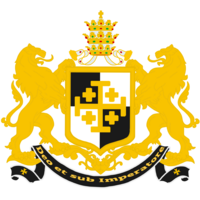1937 Deltinian Rebellion
| 1937 Deltinian Rebellion | |||||||
|---|---|---|---|---|---|---|---|
| Part of the Creeperian Civil War | |||||||
| |||||||
| Belligerents | |||||||
|
| Deltinian peasants | ||||||
| Commanders and leaders | |||||||
|
|
Muammar al-Koroma | ||||||
| Strength | |||||||
| 80,000 | 240,000-500,000 | ||||||
| Casualties and losses | |||||||
| 53 dead | 3,139+ dead (disputed) | ||||||
The 1937 Deltinian Rebellion was an uprising initiated by the Deltinians of southern Creeperopolis which occured in May 1937.
Timeline
Beginning
On May 5, 1937, Deltinian Muslim peasants in the departments of Abdan, Helam, and Jakiz revolted against the rule of the National Council for Peace and Order. The Deltinian peasants were lead by Muammar al-Koroma. The peasants demanded total independence from the Imperial and National Councils for Abdan, Helam, and Jakiz, and called for support and aid from Greater Sacramento. The government declined to send direct aid but offered the Deltinians asylum in accordance with the 1853 Sacramatian Asylum Act.
Massacre
Before the Deltinians could accept the offer, National Council soldiers under General Pascual Espinar Casaus massacred 3,193 Deltinians, effectively suppressing the revolt on May 17, 1937.
Consequences
Following the Miguelist massacre of Deltinians, General Máximo Barrueco Morterero launched an offensive into the departments of Abdan, Helam, and Jakiz in order to "liberate" the Deltinians from atheist hands in August 1937. From August 1937 until January 1938, the Imperial Council made minimal gains. The offensive was forced to be cancelled in February 1938 due to a lack of supplies to continue the offensive. The Imperial Council fortified the frontline which had been established.
